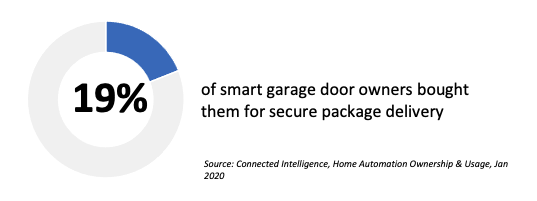
Comcast Extends its Brand to DIY Smart Home Security
Cable TV, Internet, cell phone service, and now DIY home security. Comcast is entering the DIY smart home security space with Self Protection, a $10 per month (no contract required) home monitoring service. That fee buys you 24/7 video recording and motion notifications – but no professional installation for and monitoring of the company’s own-branded Xfi or Xfinity Home indoor/outdoor cameras.
The NPD Take:
- Of course, there are some well established brands in DIY smart home security, but going with Comcast does have a benefit: integration. Existing Xfinity TV and internet customers can, for example, control cameras from the Xfinity app and see video feeds on TV using the voice control remote. On the downside, it does tie you into Comcast as a service provider. From Comcast’s perspective, this offers customers a less expensive and commitment phobic home security solution than its Xfinity Home contract required service.
Amazon Expands Delivery to Your Garage
After about 2 years in 50 cities, the Amazon Key In-Garage Delivery is now available in more than 4,000 cities, enabling Prime members access to contactless package delivery securely inside their garage. Prime members in five cities (Chicago, Dallas, Los Angeles, San Francisco, and Seattle) will now also be able to have groceries delivered to their garages.
The NPD Take:
- The timing of this announcement is coincidentally (?) timed to follow closely on the heels of Prime Day, which featured a sizeable discount on the Chamberlain MyQ garage door controller that is a “key” component of the Key In-Garage Delivery service. The roughly 50% price drop drove unit volumes to multiply a whopping 55x over the prior 13-week average. These types of smart garage door controllers are still a small – but certainly growing – segment. The convenience and peace of mind that in-garage delivery offers is something that surely holds strong appeal.
Nanoleaf Is Launching Light Bulbs and Strips
Smart lighting company Nanoleaf, best known for its fun and funky light panels, has introduced an Essentials line of more traditional lighting, including A19 bulbs and a lightstrip. These lights work with Thread mesh networking, so no dedicated hub or bridge is needed (just a border router), and also work with Bluetooth. The Essentials line will cost $20 per bulb, $50 for the base lightstrip, and $25 for a lightstrip expansion. They will initially be sold only through Apple stores and Apple.com.
The NPD Take:
This puts Nanoleaf into the territory long dominated by Philips, but increasingly shifting to lower cost alternatives. This $20 price point for the A19 puts Nanoleaf much lower in price than Philips and somewhere closer to the neighborhood of less expensive options. The Thread connectivity adds additional appeal beyond price – if consumers are savvy enough to understand it. Right now, the only border router listed as being compatible is the newly available Apple HomePod Mini, so the addressable market is still limited to those who have purchased the new speaker in the past handful of weeks.